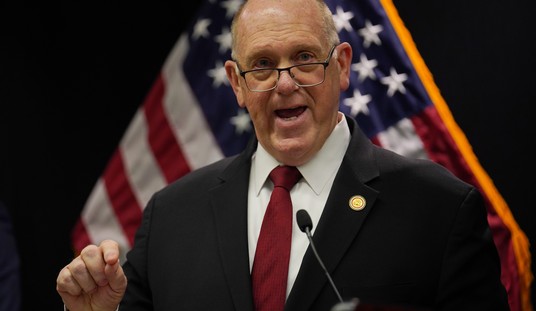Who and what exactly do televised debates serve? It’s tougher to argue that it serves voters’ interests after the fourth official DNC debate on Tuesday night. Ratings for the event came in lowest for the series, with less than half of the viewership from the first debate in June sticking around:
The fourth face-off between presidential hopefuls brought in the smallest audience for the 2020 cycle to date.
CNN drew another sizable audience for the fourth Democratic presidential debate — but not as big as the news network’s previous debate telecast.
Tuesday’s debate averaged 8.34 million TV viewers, below CNN’s last debate coverage on July 30-31 and the smallest audience of the four Democratic debates thus far. Live streams of the coverage on digital properties for CNN and co-sponsor The New York Times averaged an additional 449,000.
Those are not insignificant numbers, as the Hollywood Reporter takes care to note. The three-hour debate’s viewership overall beat most of its prime-time competition on Tuesday night. Only NCIS and FBI did better, both of which air on CBS’ broadcast network.
However, the trend lines for viewership are not going upward as voters get more engaged in the process. They are trending downward, as the debates also did in the 2016 cycle. Few people appear to note the counterintuitive result, let alone consider what it means. There’s a reason that the best ratings come from the first debates — it’s because they are novelty acts, whose purposes are strictly limited to entertainment and media-narrative manufacturing.
As I write in my column at The Week, this is one point on which Tulsi Gabbard scores a direct hit:
One has to ask whether these debates serve any purpose at all, especially in their current format. Do voters actually see or hear anything in any of these “commercialized reality television” events, as Tulsi Gabbard put it last week, to provide a rational basis for a voting decision? And do candidates offer anything other than a regurgitation of campaign-trail sound bites that voters already hear ad infinitum thanks to 24-hour news and social media? …
Even in 186 minutes, no one got much of a chance to discuss their positions or respond substantively to what legitimate criticisms and differences emerged, and few got much time in the spotlight at all. According to The Washington Post‘s calculations, Warren got the most talk time, with just over 23 minutes — in part because other candidates took aim at her more often than before. Biden came in second at 16.6 minutes stretched out over the three-hour marathon, followed by six candidates who got between 11.7 and 13.2 minutes of attention. Gabbard came in second-last with 8.2 minutes, a full minute more than first-time debater Tom Steyer.
This format mostly serves media outlets that use the clips for narrative purposes and which then try to make definitive pronouncements about the state of an ambiguous process. Nothing about it is calculated to informing voters about policies and proposals except in the most superficial and vacuous sense. It feels more and more like an anachronistic relic of an era where Americans had few or no methods to watch candidates operate in real time other than the occasional campaign visit or network-television interview.
These spectacles might have made sense forty years ago, or even 28 years ago. In the modern Internet era, it’s a distraction — and worse yet, a contrivance that trivializes and degrades the participants. The two political parties should recognize the damage that they’re doing by insisting on partnering up on these fiascos. One can argue whether or not that Donald Trump might not have won the nomination without these “commercialized reality television” events, but this format will encourage more reality-TV oriented candidates rather than discourage them.
Even one-on-one debates are more than a bit anachronistic in an era where voters can track candidates in real time and hear every word they say. At least they’d be an improvement over the current format, as it would discourage zingers and encourage actual dialogue.
Republicans should take note of the dangers of pursuing this kind of strategy. They will face a similar cycle in four years whether Trump gets re-elected or not. Their best hope for nominating a serious candidate who has not been degraded by this process and trivialized by media narrative building is to keep from feeding the beast that produces the damage. Other than for novelty and amusement, voters are already checking out of the debate format.








Join the conversation as a VIP Member